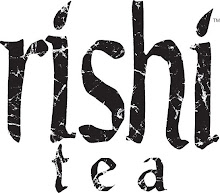Throughout their travels, Joshua and Sean will be documenting the spring harvest and picking of the Ancient Tree teas in the Hekai village of Menghun Town, Yunnan as well as documenting for the first time the use of the fair trade funds generated by the Mannong Manmai Ancient Tree Tea Fair Trade Project.
Rishi Tea partnered with the Mannong Ancient Tea Association in 2007 and the Mannong Manmai Ancient Tree Forest received Fair Trade Certification in February of 2007. As a company that buys direct from tea growers at origin, it's critical that we witness firsthand the use of the fair trade funds. Experiencing the positive improvements in tea producing areas reinforces the importance and necessity of social, economic and environmental responsibility.
According to records and living tea trees, the area was first planted by ancient tea farmers about 1,500 years ago. The old tea trees of Mannong produce spectacular pu-erh, Dian Hong, green and white teas. Rishi teas from the Mannong Project include: Ancient Emerald Lily, Ancient Moonlight White, Snow Sprout (Bai Ya), Yunnan black tea (Dian Hong), Sheng Pu-erh Tuo Cha, Shu Pu-erh, Wild Berry Black, Earl Grey, Vanilla Black, Lemongrass Black, Classic Iced Tea, Summer Lemon Iced, Rishi’s blended Chai, and several other blends that contain black teas originating from the Mannong Project.
 The Lahu and Hani are the main ethnic groups living in the Hekai Tea Mountains. Their economic well-being and cultural traditions are intertwined with the ancient tea trees.
The Lahu and Hani are the main ethnic groups living in the Hekai Tea Mountains. Their economic well-being and cultural traditions are intertwined with the ancient tea trees.
 Lahu villagers picking tea. The average height of the tea trees is between 10–23 feet. Nearly 1,650 acres of ancient tea gardens exist in the Mannong and Manmai tea growing area, which produce approximately 250,000 kg of high quality tea each year.
Lahu villagers picking tea. The average height of the tea trees is between 10–23 feet. Nearly 1,650 acres of ancient tea gardens exist in the Mannong and Manmai tea growing area, which produce approximately 250,000 kg of high quality tea each year.All photos copyright of Rishi Tea. Do not use without permission. Photos by Sean O'Leary.




1 comment:
These villages are among the oldest tea-producing areas in the entire world, and they contain Xishuangbanna’s best preserved, largest range of ancient tea gardens. The area was first planted by ancient tea farmers about 1,500 years ago. The old tea trees of Mannong produce spectacular pu-erh, Dian Hong, green and white teas.
Post a Comment